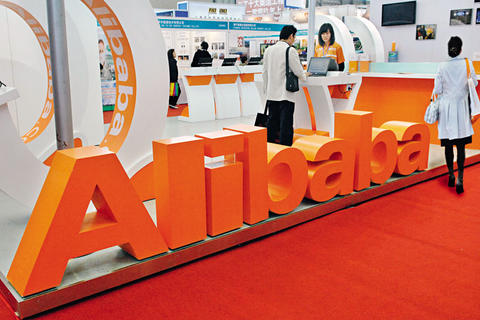In today's podcast, Alibaba meets with county governments as e-commerce integrates itself deeper into the Chinese economy.
在今天的播報(bào)中,電商阿里巴巴為了更加滲透中國(guó)經(jīng)濟(jì),邀請(qǐng)了縣級(jí)政府領(lǐng)導(dǎo)參加峰會(huì)。
As the company prepares for an IPO in New York that could be one of the largest in history, Alibaba Group drew hundreds of local government leaders to its Hangzhou headquarters to discuss how e-commerce can help their economies. While recent conferences involving manufacturers and purchasing agents are typical for a company like Alibaba, this latest meeting is perhaps more surprising.
目前,阿里巴巴正在準(zhǔn)備在紐約上市,這也可能成為歷史上規(guī)模最大的一次上市。阿里巴巴集團(tuán)召集了上百名政府領(lǐng)導(dǎo)來(lái)到杭州總部探討電商如何促進(jìn)當(dāng)?shù)亟?jīng)濟(jì)發(fā)展問(wèn)題。近期峰會(huì)有制造商和采購(gòu)商參加,而他們對(duì)像阿里巴巴這樣的企業(yè)尤為特別。最新一次會(huì)議有可能有更多驚喜。

What it means, though, is that e-commerce has begun to establish footholds in even the most old-fashioned parts of the real economy—and that governments are beginning to notice. According to participants in the summit, sales of agricultural products on Alibaba's Taobao platform have begun to shift from individual businesses to government-regulated bulk commodity trading. And as the industrialized east provides a shrinking fraction of the company's sales volume, the markets left for Alibaba to conquer may be precisely the ones that decades of reform have left behind.
這就意味著,電商已經(jīng)開(kāi)始在實(shí)體經(jīng)濟(jì)最為傳統(tǒng)的地方扎根,政府已經(jīng)注意到了這一點(diǎn)。據(jù)峰會(huì)參與者說(shuō),在阿里巴巴淘寶平臺(tái)上所銷售的農(nóng)產(chǎn)品已經(jīng)開(kāi)始從個(gè)體農(nóng)戶為單位發(fā)展的模式向政府引導(dǎo)和牽頭的大宗商品貿(mào)易轉(zhuǎn)變。由于東部工業(yè)化在阿里巴巴銷售份額中的分量逐漸減少,阿里巴巴能夠掌控的市場(chǎng)或許就是十幾年改革中所落下的。
For Caixin Online, this is James Bradbury.
這是詹姆斯·布拉德伯里為您帶來(lái)的財(cái)新新聞報(bào)道。
譯文屬可可英語(yǔ)原創(chuàng),未經(jīng)允許,不得轉(zhuǎn)載。











